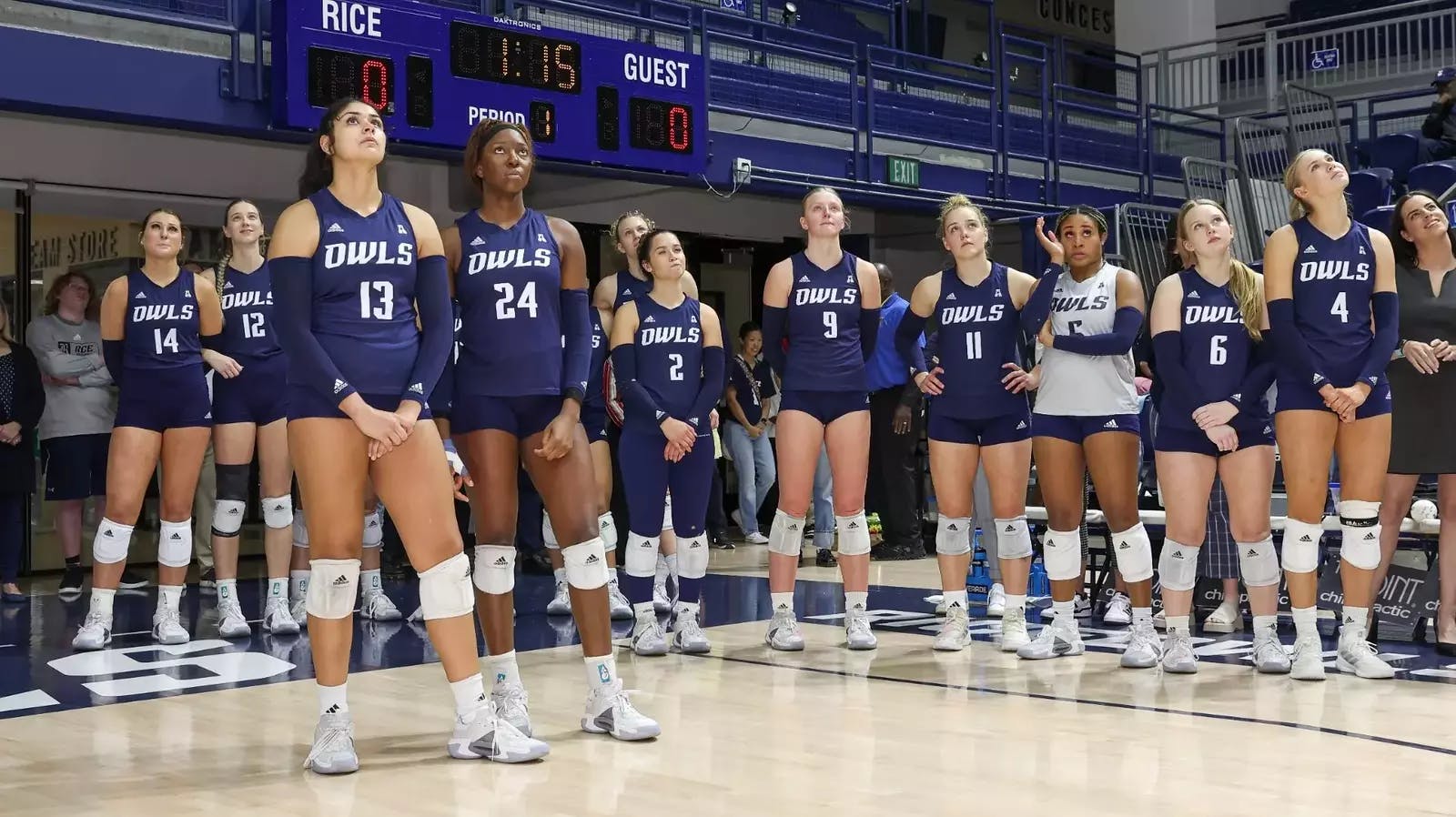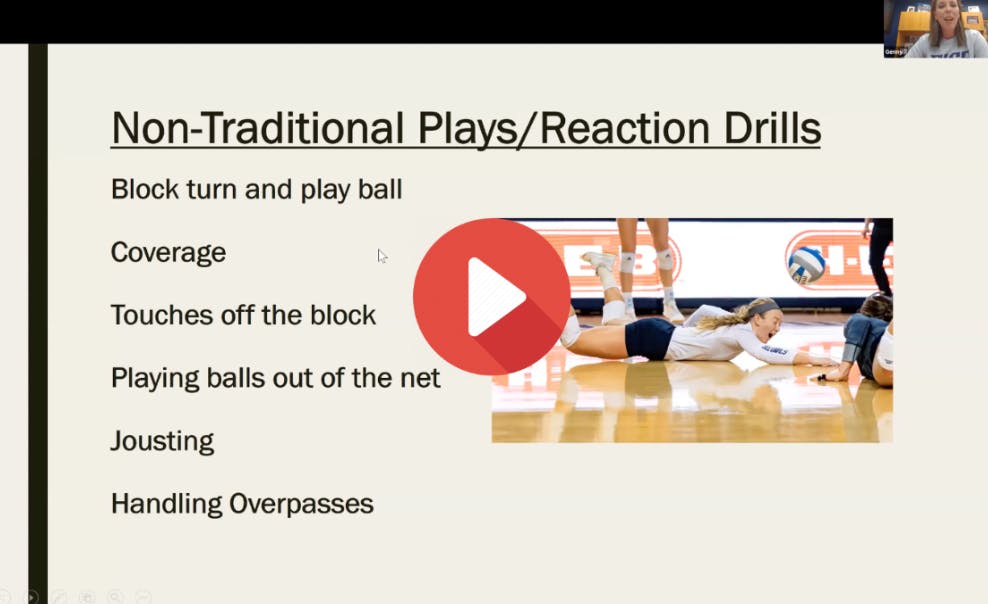Featured courses
- Volleyball Passing Drills to Win More Matches by Jackson Chlebowy
- Volleyball Serving Made Simple: Drills for Coaches and Athletes by Jackson Chlebowy
- Mastering the 5-1 Rotation in Volleyball: A Comprehensive Guide by Grant Young
- Master the Perfect Volleyball Approach – Jump Higher & Hit Harder by Sam DeJoseph
- Dominate the Net – 5 Must-Try Drills for Pin Hitters by Sam DeJoseph
- Three Small Group Training Drills to Improve Your Volleyball Team by Grant Young
- How to Teach Serving Volleyballs by Grant Young
- How to Make Your Volleyball Practices More Game-Like by Grant Young
- Three Volleyball Drills to Round Out Your Team’s Skills by Grant Young
- JUMP Serve into a Win by Eric Mahnke

How to Make Your Volleyball Practices More Game-Like
- By Grant Young
Given volleyball’s nature, it can be difficult to construct a practice plan that doesn’t feel monotonous.
But finding a way to do so is crucial when it comes to keeping your players feeling both engaged and excited about showing up and improving each day.
Not to mention that if your players aren’t focused during their practices, it will be that much more difficult for them to flip a switch and become prepared for the pressure that comes when the lights are bright and the games begin to count in the season.
Yet, what part of playing volleyball do players find the most fun? Playing in games, of course. And remembering this allows coaches to kill two birds with one stone (so to speak), by making their practices as game-like as possible.
And Genny Volpe is the perfect person to teach you how to do so.
2024 was Coach Volpe’s 21st season as the head women’s volleyball coach at Rice University in Texas. Genny Volpe has established the Owl volleyball program as a power in the Southwest, having taken them to eight NCAA tournaments (2004, 2008, 2009, 2018, 2019, spring 2021, fall 2021, 2022), the only eight appearances in Rice's history.
Volpe was inducted into the Rice Athletics Hall of Fame on October 27, 2023. The sixth head coach in Rice volleyball history, Volpe holds the program record for both career wins (394-210 overall) and highest career winning percentage (.652). The 2020-21 AVCA Southwest Region Coach of the Year and also a two-time C-USA Coach of the Year (2008 and 2018), Volpe has led the Owls to five conference championships under her watch (Conference USA: 2009, 2018, 2020-21, 2021, 2022), and has coached 16 All-Americans and 64 all-conference selections.
Coach Volpe’s ‘Game Ready! Implementing Game Situation in Daily Practice’ course is a masterclass when it comes to getting your players excited for each practice while preparing them for actual games. Her practice plans and drills are exactly what you need to not only set your team apart, but have them winning endless sets this season.
General Principles for Planning Practice
One of the most important principles for Coach Volpe when it comes to planning for practice is understanding how much practice time you’ll be allotted.
This is going to vary depending on what level of team you’re coaching at. Regardless of that, knowing how much practice time you have per week will allow you to prioritize the drills that you know your team needs most in order to improve.
One somewhat unconventional aspect of Coach Volpe’s practices is what she calls “practicing ugly”. This is her way of acknowledging that much of what happens in a volleyball game can look ugly, and involves improvisation that occurs outside of whatever system the coach and team are trying to implement. Therefore, Coach Volpe believes it’s important to ensure players are getting these “ugly” reps (perhaps just by scrimmaging without any set plays, and just trying to keep a rally alive by any means necessary) during practice so that they’re prepared for them inevitably occurring in-game.
In addition, Coach Volpe likes to drill game situations that might occur in a game, such as a team running out of rubs or pivoting to an offensive-focused formation. Therefore, if these scenarios occur in the game, a team won’t be hapless to deal with them.
Finally, Coach Volpe notes that she wants to ensure her practices are fun so that her players remain engaged and get what they started playing the sport for in the first place.
The 3 C’s
Coach Volpe’s practice philosophy centers around her “Three C’s: Collaborative, Competitive, and Challenging.
Collaborative: Coach Volpe wants to be asking a lot of questions to her players during practice. She wants to get their opinions on whether they feel like they’re optimizing their time, she asks them to set goals for each practice, and asks them to make sure they understand all of the different strategic aspects she discusses throughout a practice.
Keeping players engaged and getting problems and confusion solved before they become something bigger is a major part of running an efficient, effective practice in Coach Volpe’s eyes.
Competitive: Making practices competitive both enhances focus and the overall performance of practice. Regardless of what a team is doing in their practice, there’s almost certainly a way to make it competitive.
Challenging: Coach Volpe is a big believer in what she calls setting stretch goals. What she means by this is that she wants to set goals for her team (and wants her players to set these goals for themselves) that might be too lofty for them to achieve. This will not only help players to improve and get closer to achieving these goals, but it will also get them acclimated to failing; which will come in handy when they inevitably fail at some point during a game.
Non-Traditional Plays, Reaction Drills

Coach Volpe has several what she calls “non-traditional” plays that happen all the time in volleyball games but aren’t necessarily practiced, because they aren’t part of a set play or formation.
Among these are when the block has to turn and play a ball that’s coming right at their face. Others are creative coverages, getting touches off of the block, playing balls that come off the net in a strange way, jousting, and handling overpasses.
Teams are bound to across multiple of these scenarios in games. And while it may seem difficult to simulate a scenario in practice where it occurs, all you need to do it make it as barebones as possible or mimic the brief reaction time a player will need in order to execute one of these split-second plays.


